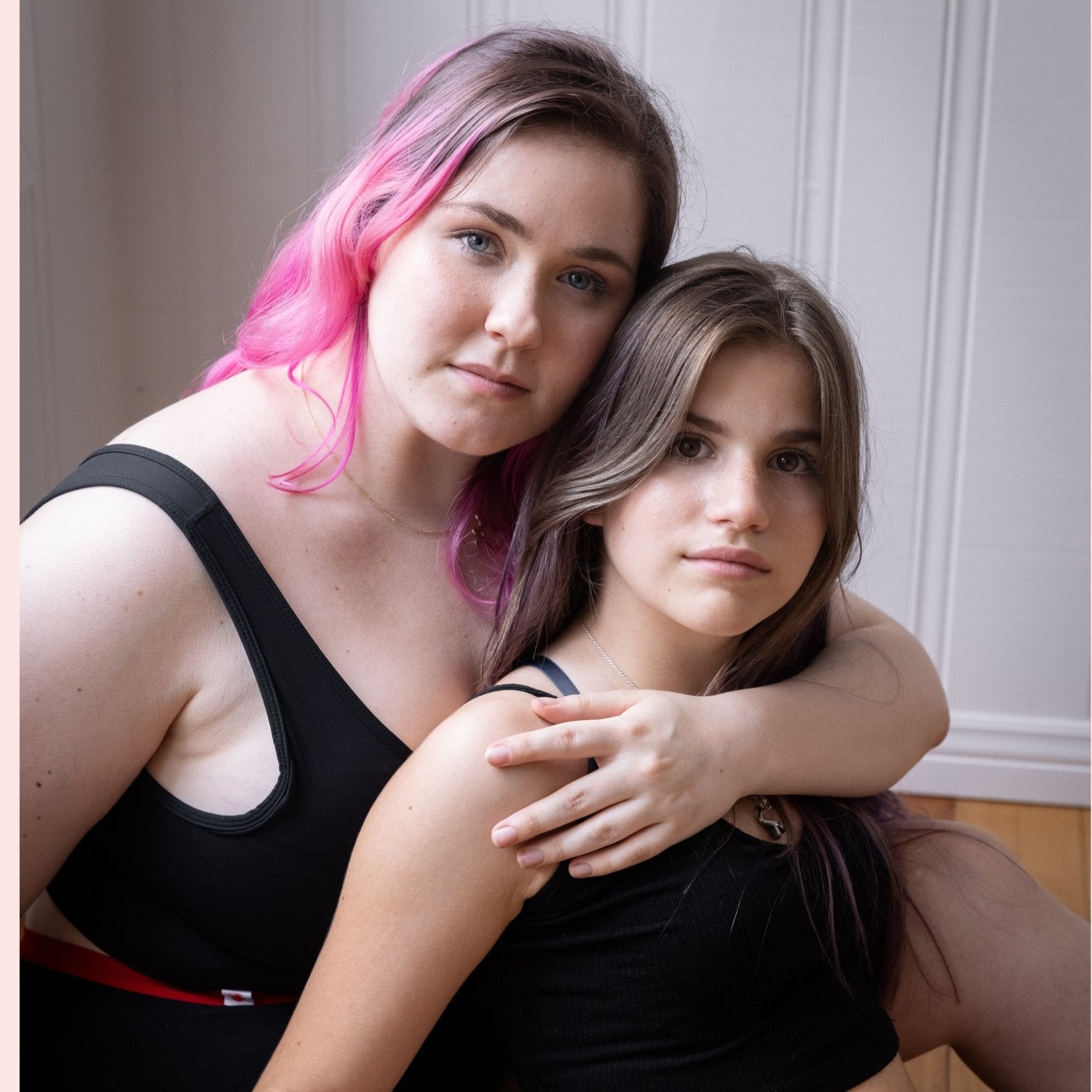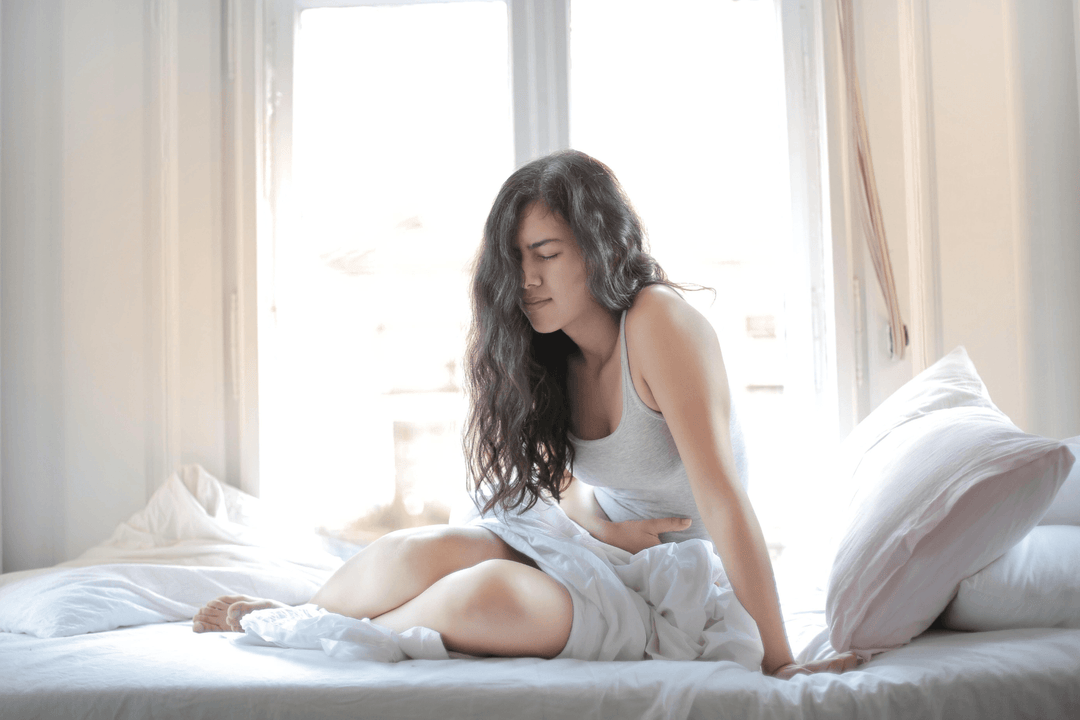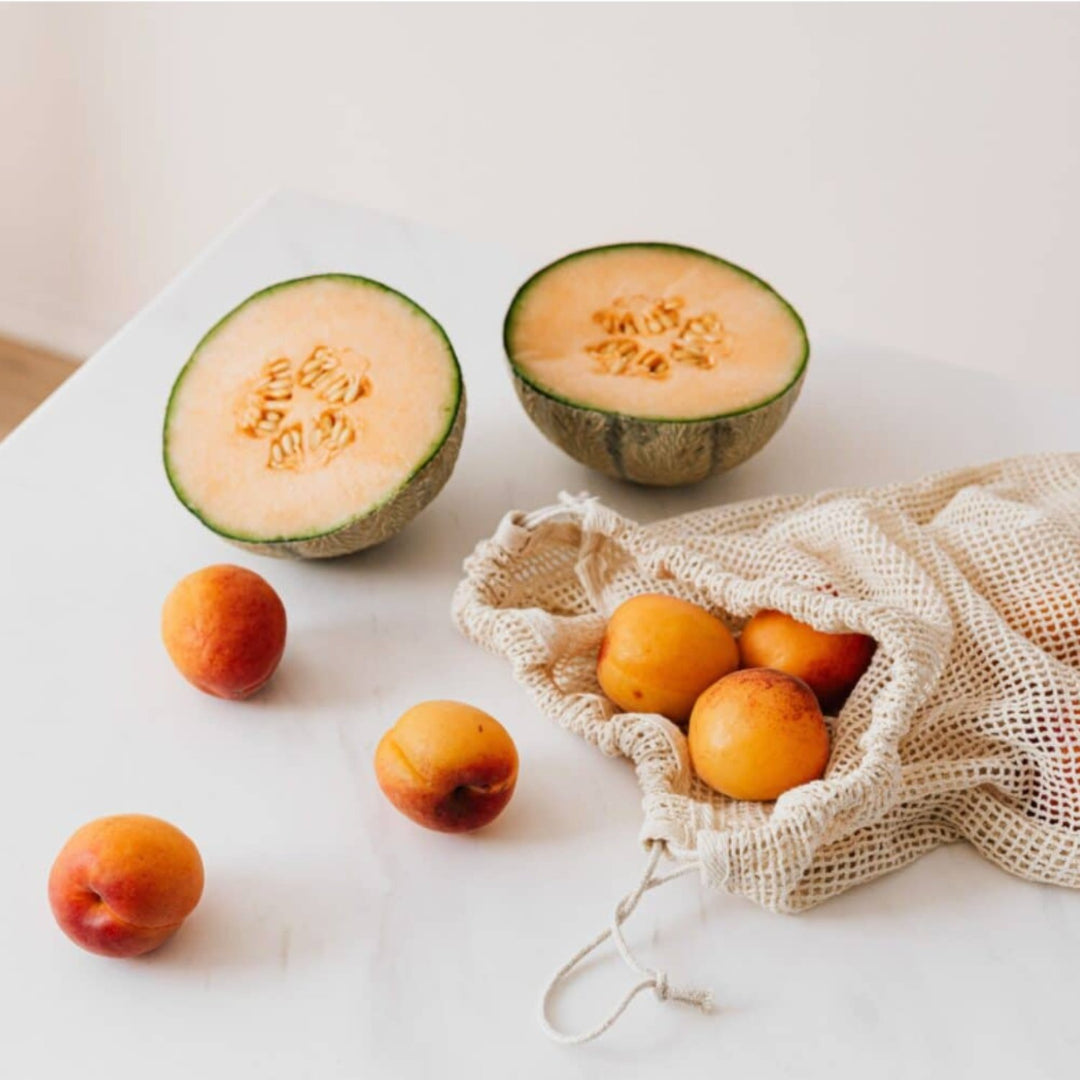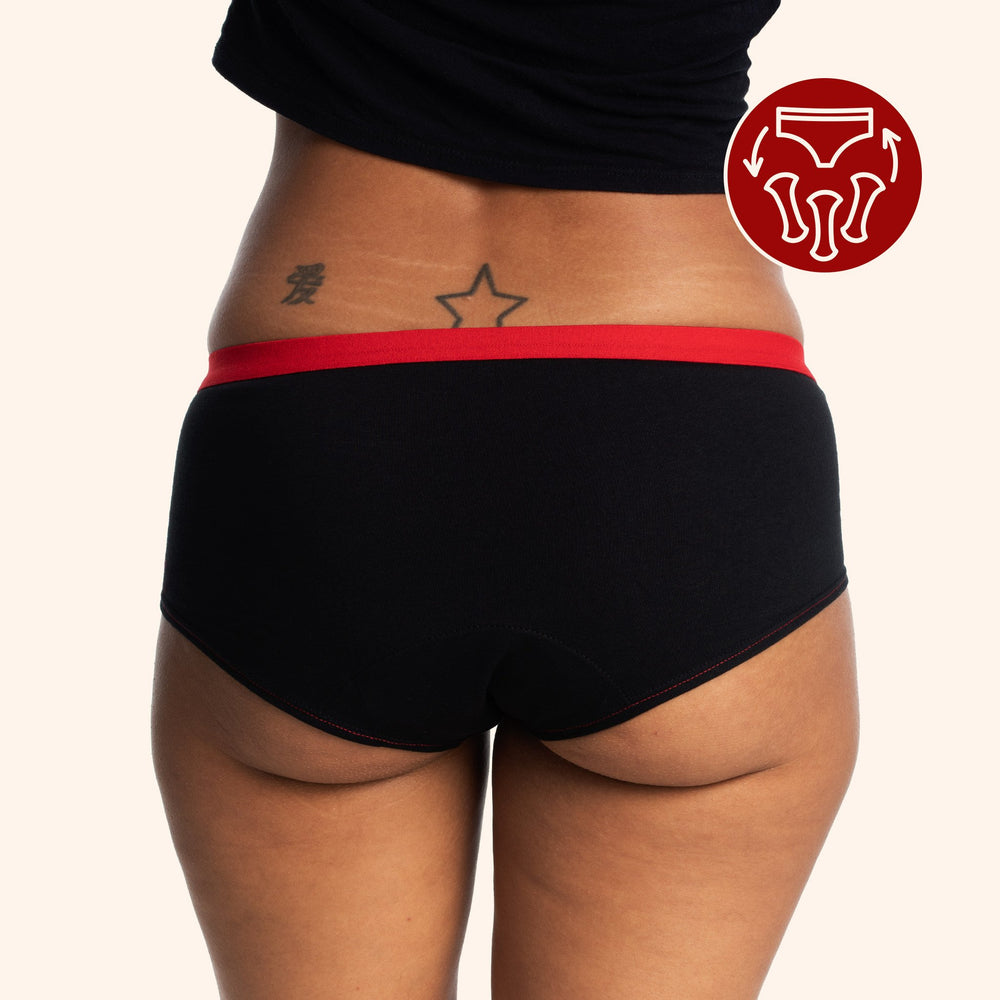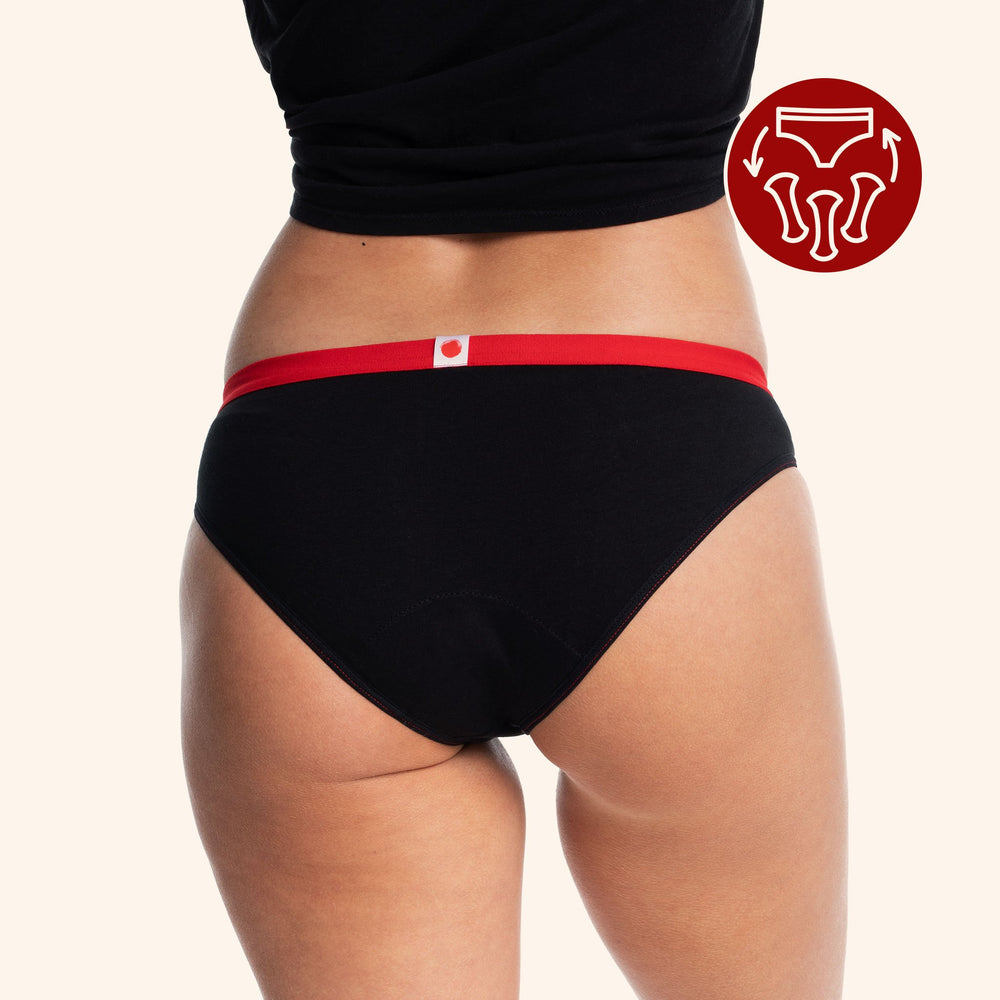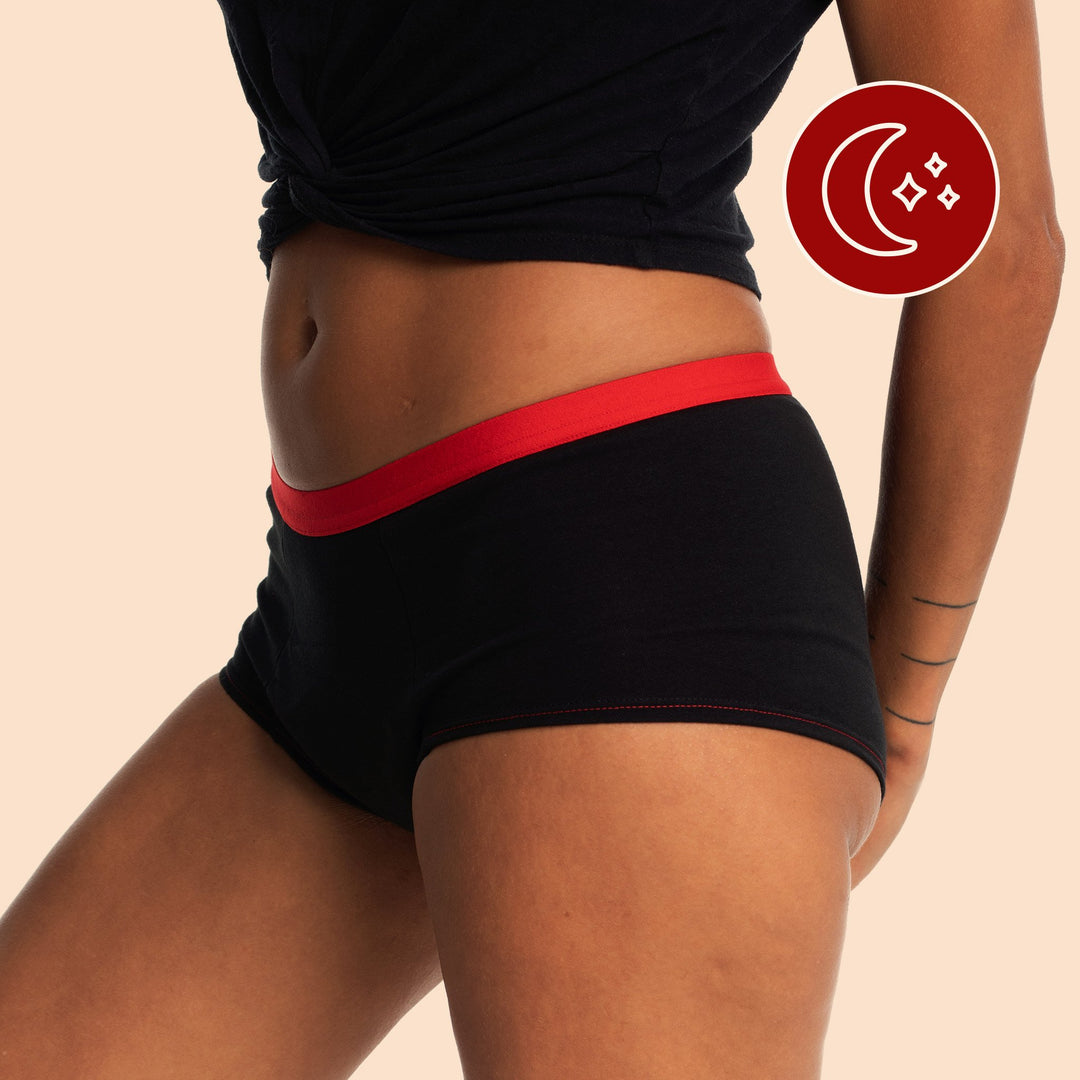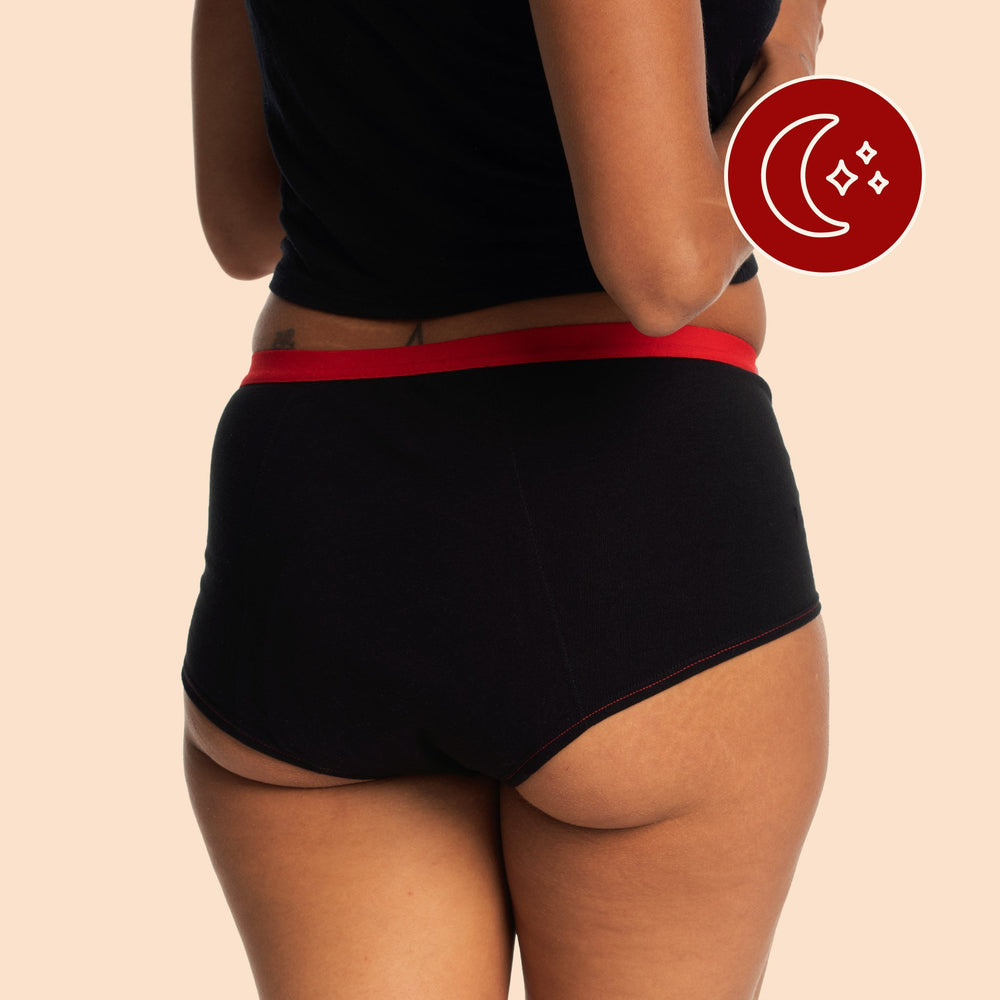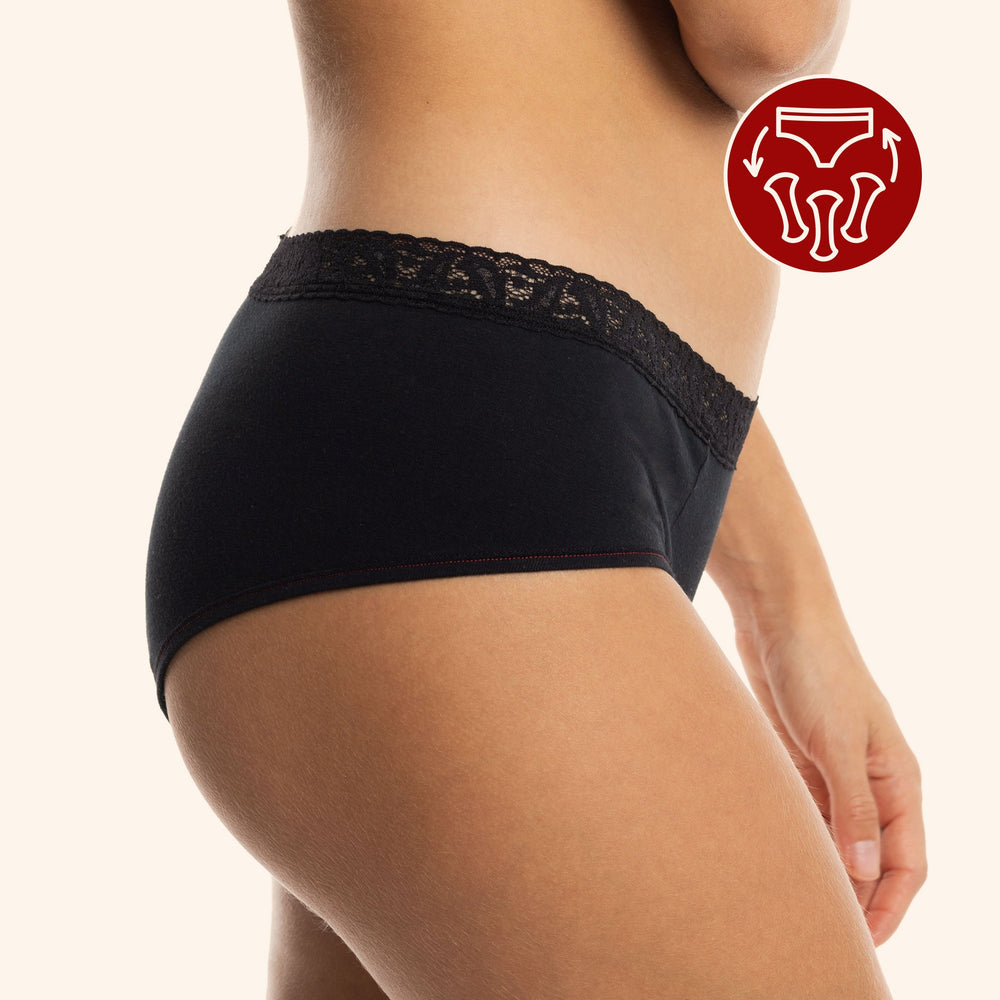
This article is aimed directly at young people in the prime of their lives, it aims to make them discover all the magic of women! Give them the knowledge as a gift, please share!
There is nothing more embarrassing than a school teacher telling you about puberty… except maybe giving a presentation in front of the whole class with the zip pants unzipped (aka the fly open) and broccoli between your teeth.
Believe me, I vividly remember that day of school when my teacher Maria, who was about 101, gave us a quick lesson on the subject. The feeling of wanting to save myself by running away had scarred me more than what she was trying to teach us.
An awkward adult telling us about body hair and pimples and fluids and all the other uncomfortable changes doesn’t help the situation.
But what can you do, you still need to learn about what’s going on in YOUR body!
In the following article, you will find answers to all of your burning questions about menstruation, no matter how weird they are. * And this without you falling asleep to boring words like: endocrine or menarche!
I’m telling you now. I’ll tell you the real deal with real words and without going through 1001 ways!
If you haven’t got your first period yet, here are the first symptoms that tell you it’s time!
Your period will come about 2 years after the first signs of puberty, right after a big growth spurt. What causes puberty? Your brain. More specifically, your hypothalamus. It is the conductor of the hormones that will wreak havoc in your body for a good cause: to turn you into an adult!

Here are the signs of puberty:
1- Bulging nipples and the change of colour of them: they will become darker.

2- Shortly after the appearance of your chest, there will be pubic hair which, little by little, will become thicker and cover the pubic area.

3- Then comes a few small gifts that we would gladly do without: acne, oily skin, odours under the armpits.

4- Finally, the shape of the body becomes feminine: the hips widen and the waist becomes slimmer, like an hourglass.

5- Last detail: about a year before your period, you may observe a yellowish liquid in your panties.

What age will I have my period?
The average age of your first period is between 12-13 years old, but it is also possible to have it as early as 8-9 years old or as late as 15-16 years old.
Did you know that… since the 1950s, the first periods now come later! Why? Due to increased obesity, changes in nutrition, and many other factors including environmental contaminants.
Let’s start with the basics!
What is the purpose of menstruation? The purpose is to make children! Yes, every month your body prepares to have a baby in your womb! That’s pretty crazy!
A menstrual cycle is : 4 distinct phases*, as if your body went through the 4 seasons within the same month!

Cycle length:approximately 21 to 35 days.*
*Am I normal? My cycle is sometimes longer than 35 days. Yes, you are normal, the first few years are often irregular.Some women remain irregular throughout their lives. Let me introduce you to your reproductive system:this is where most of the activities take place.

Your reproductive system is found here, in your lower abdomen:

Here are the 4 Famous Phases of your Cycle:
1. Phase Follicular: aka, the preparation of the “Big Party!”
What’s happening in your body This is when a cocktail of hormones kicks in to get your body to prepare a little egg (aka the oocyte). Egg preparation will have started on the first day of menstruation and will end at ovulation.

During this phase, the walls of your uterus (endometrium) thicken to accommodate your little egg if it is fertilized!
Basically, it’s as if your uterus was a baby room, and every month, it remodels by depositing a thick tapestry on the walls (endometrium) to get ready to welcome your future child! You feel: Your energy level is high, you feel independent and strong. If that’s in your plans, now would be a good time to climb Everest or otherwise invite your friends over for a Tiktok video!
Did you know that? In the first year that you have your period, your body will produce about 2 small eggs (oocytes) for 10 cycles. When you are an adult, you will produce 9 for 10 cycles.
2. Ovulatory phase: aka the “Big party”!
What’s happening in your body Your hypothalamus (do you remember the conductor in your brain?) Sends the message to the ovaries to get the little egg out of the ovary. (The egg, formerly called an oocyte, now responds to the name of ovum).
It is trapped by the fallopian tube and slowly moves towards the uterus!
The fallopian tubes are like long hallways leading to a baby’s room (the womb). While roaming along the hallway, the egg sprinkles hormones here and there (including the famous progesterone!)
At the same time, your body will release a little whitish liquid that you can see in your panties.

Did you know? The little white fluid that flows from your vagina that you can see in your panties is called cervical mucus. It’s normal! Throughout your cycle, it will change slightly in texture and colour depending on the phase of your cycle! It is used to help sperm travel to the egg during ovulation or to prevent them from going there later in the cycle.
You feel: some people feel a little pinching in the lower abdomen on the left or right! You are still surfing on a wave of energy, you want to start lots of projects, see your friends, party! Enjoy it!
3. Luteal phase: aka the “Sleeping In”!
What happens in your body: Small, very soft hairs help your egg move down to the uterus (baby’s room).
At the same time, your body is finalizing the final preparations for the bedroom to make it very cozy when the future baby arrives!
If the egg is not fertilized, it will break down and stop producing hormones. This is what will give the signal to your endometrium (aka the lining of your uterus) to shed, becoming your menstrual flow. And there you go, the cycle restarts: you are menstruating!
You feel: stomach, heart, back and head pain, breast tenderness. You may see acne appear and you feel bloated. There are over 100 different symptoms that vary from cycle to cycle and from person to person.
It’s a time of rest after the “big party”. Your energy slowly comes down. You may feel more irritable and sensitive. Some people use this time to write in their journal, refocus on themselves or express themselves through art.
4. Menstruation: aka the “Great Spill”!
What happens in your body: your period starts on day 1 of your cycle! The walls of your uterus break down and come out through your vagina, and that’s your menstrual flow.

You feel: this is the time when your blood flows from your vagina and you experience a wave of emotions. So it’s super normal to have low energy, to feel a little bloated, and have stomach or back pain.
Why not take this opportunity to stay at home, relax in your bath with bubbles up to your ears and a little ginger tea in your hand?
Here is a short video that sums up what happens throughout the menstrual cycle!
Some anecdotes on the first menstruation!
I asked a few friends to tell me about their first period! Here’s how it went for them:
“It was morning and I was in the bathroom of my family’s boat. The boat toilets being what they are (very small,) I lowered my underwear, sat on the little plastic toilet and then noticed my panties were soaked in blood!
I’m stressed, I’m hot, and the cabin seems even smaller than usual. I call my mother, but she doesn’t answer…. My father arrives! I order him to go get mom ASAP! When she arrives with her reassuring smile and gentle eyes, she gives me a sanitary pad. I made her swear not to tell anyone that I’m on my period. I was way too embarrassed!
A little later when I dipped my toes in the water, I saw my big sister and her friends on the other boat giggling, whispering secrets to each other as they looked at me. I felt so betrayed! ” – Geneviève
“I was in my geography class when I felt something warm in my panties. I immediately ran to the bathroom. There wasn’t a lot of blood, just a bit of “spotting”. I knew what it meant since my mom had awkwardly explained sex to me, but I didn’t really understand what it entailed.
I put in my first tampon when I was in high school! I was at a friend’s family cabin and wanted to swim. So her mom taught me how to put it in, the angle, and everything! ” – Mélissa
What to remember from all of this:
- It’s such a normal and extraordinary stage all at the same time.
- It is a time in your life full of unsettling changes, but you have to accept it without judgement because everything ends up passing.
- Don’t hesitate to ask questions to the women around you. The more informed you are, the more equipped you will be to welcome everything that comes into your life as a woman!
- Stay tuned for Part 2- Question Period where we will tackle the most… juicy topics!
Sources and other amazing reads:
https://urbania.ca/article/puberte-battle-le-combat-de-la-souffrance/
https://helloclue.com/articles/life-stages/advice-to-my-13-year-old-self-6-tips-for-navigating-puberty
https://helloclue.com/articles/life-stages/when-will-i-get-my-first-period
https://helloclue.com/articles/life-stages/puberty-101-clue-guide-to-getting-your-period-part-1
https://helloclue.com/articles/life-stages/do-you-remember-your-first-period
https://helloclue.com/articles/life-stages/puberty-101-clue-guide-to-getting-your-period-part-2
https://helloclue.com/articles/life-stages/when-does-menstruation-begin
http://www.sosgrossesseestrie.qc.ca/prevention-et-contraception/cycle-menstruel/
https://www.teljeunes.com/Tel-jeunes/Ecrisnous?gclid=CjwKCAjwqJ_1BRBZEiwAv73uwCsDLj8muy_qGwHMgf6dkWAmBnIuLWzQljJG_2gaJUG5pnJRiYX1iRoCzWYQAvD_BwE




